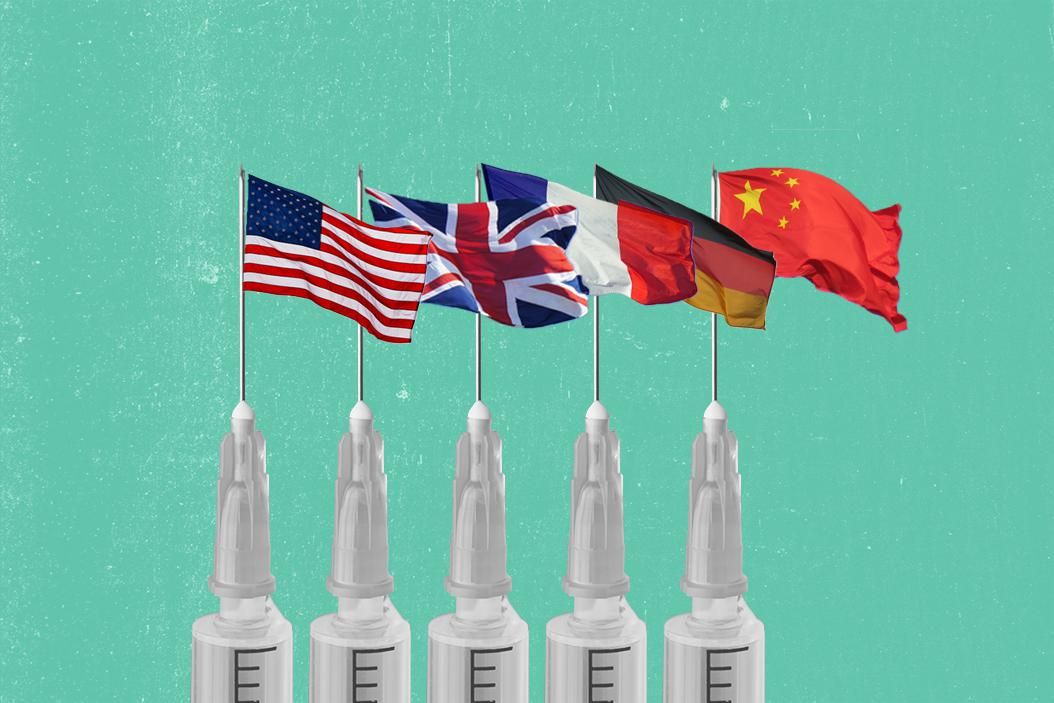What We’re Watching: US vaccine patent U-turn, right wins big in Madrid, Biden weighs in on Russia-Ukraine
US reverses course on vaccine patents: In a surprise move, the Biden administration will now support waiving international property rights for COVID vaccines at the World Trade Organization. Until now the US had firmly opposed waiving those patents, despite demands from developing countries led by India and South Africa to do so. Biden's about face comes just a week after he moved to free up 60 million of American-bought AstraZeneca jabs — still not approved by US regulators — for nations in need. It's not clear how fast an IP waiver would really help other countries, as the major impediments to ramping up vaccine manufacturing have more to do with logistics and supply chains than with patent protections alone. But if patent waivers do accelerate production over time, then that could accelerate a globalreturn to normal — potentially winning the US a ton of goodwill.
The left gets pummeled in Madrid: The two leftwing parties in Spain's national government got massacred in regional elections in Madrid this week. Both the center-left PSOE and the far-left Podemos were steamrolled by the conservative Popular Party, which more than doubled its current seats to win 64, just four shy of a majority on its own in the Madrid legislature. The PP may now even turn to the upstart far-rightists of Vox in order to form a coalition government in Madrid. The defeat was a crushing blow for Prime Minister Pedro Sánchez of the PSOE, who has often clashed with Madrid's pugnacious regional leader over the latter's disdain for economy-crippling lockdowns. Moreover, the surge in support for PP and Vox in Madrid — always an influential bellwether for national politics — will make him very reluctant to call early elections, which he was considering doing because the PP until recently was in big trouble following its dismal showing in the Catalan election just three months ago. Interesting times ahead for Spanish politics.
Biden, Ukraine, and Russia: I'd like to speak face-to-face with Russian President Vladimir Putin sometime this summer, says US President Joe Biden. Not a bad idea, says the Kremlin. If it happens, the two leaders are sure to talk about Ukraine, and there have been suggestions this week that the US might join Germany and France in efforts to mediate the conflict and find a path to peace. US Secretary of State Tony Blinken is actually in Kyiv this week to assert "unwavering US support for Ukraine's sovereignty and territorial integrity in the face of Russia's ongoing aggression." Russia has lately been dialing up the pressure on Ukraine – with a brief military buildup along the border between the two countries, military exercises in the disputed Crimea peninsula, and Russian threats to blockade key Ukrainian ports. These are reminders that the central challenge for any mediator is ending a conflict that Russia's government still finds useful for both domestic and international purposes.